Table of Contents

Although working remotely from home has been on the rise in recent years, the COVID-19 pandemic quarantine gave many no choice but to jump into the growing remote workforce.
While there are many benefits to working from home, there are also challenges that many didn’t realize before starting to work remotely or becoming part of a remote team.
Benefits of Remote Working
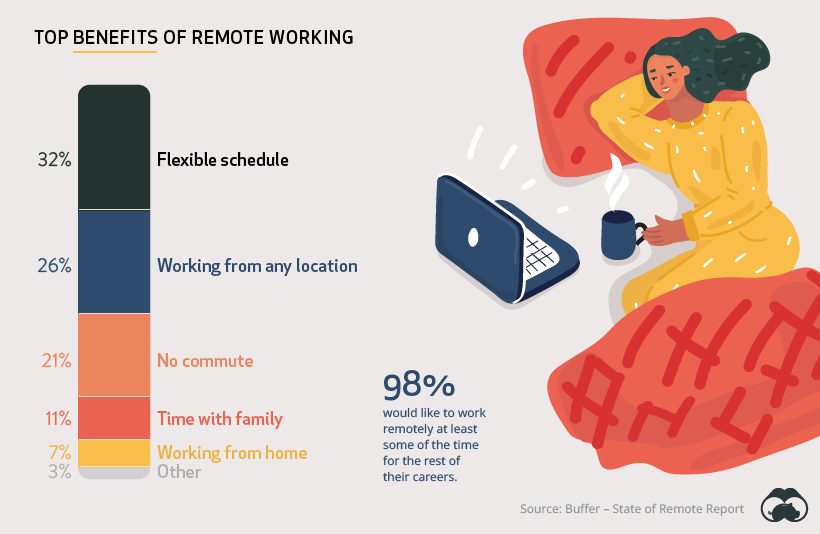
Working remotely offers a flexible schedule and allows you to work from home or wherever you are.
Not having to factor in commute times allows more time to do other things, like spending time with family and having regular meals together at a regular time whether or not there is a traffic gridlock or trains are running late.
Almost everyone agrees that they would like to work remotely at least part of the time permanently.
Top Struggles of Remote Workers
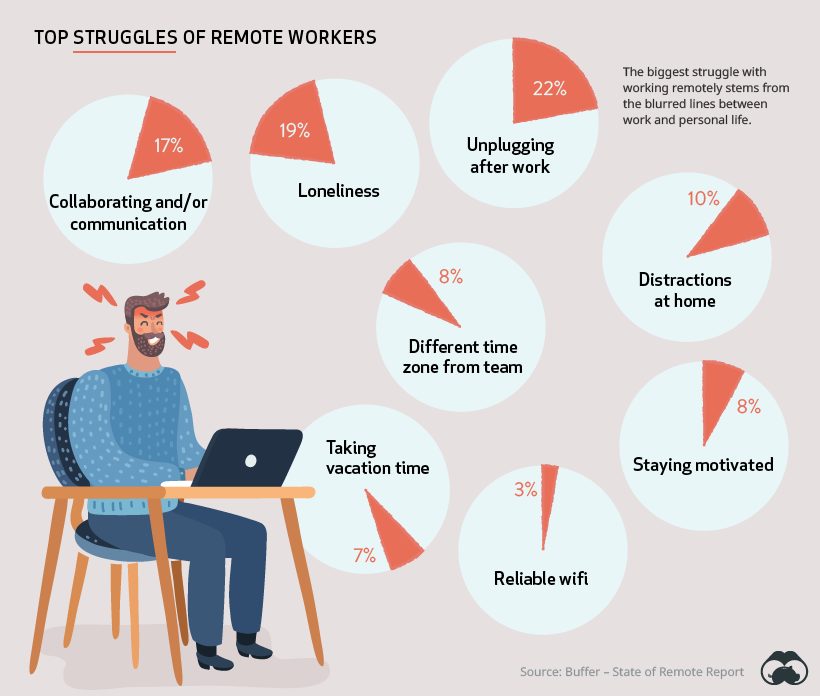
One of the biggest challenges for remote workers are the blurred lines between work and home life. While working from home it can be difficult to get out of the work mindset or back into the work mindset after personal time.
Many remote workers report feeling lonely and disconnected because of the lack of social interaction that normally occurs in the workplace.
Some people are frustrated that communication and collaboration efforts can be more difficult when working remotely. It’s harder to pin others down when you don’t see them face to face and it’s more difficult to get answers you need quickly when others are working on different schedules.
When working remotely you may be working with a team in a different time zone, which can slow communications down even further. You may also face the challenge of distractions at home and a lack of motivation to put in the time to do your best work.
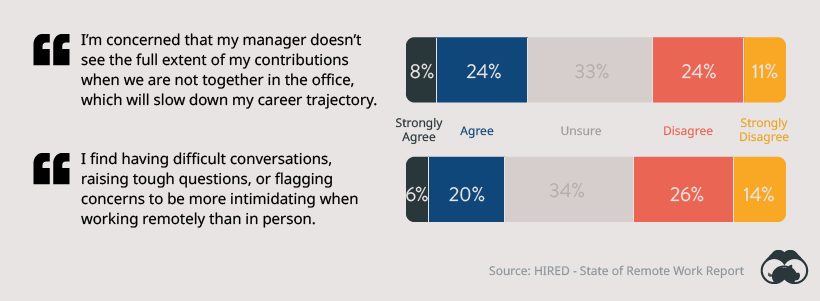
Flexible Workplace Obstacles
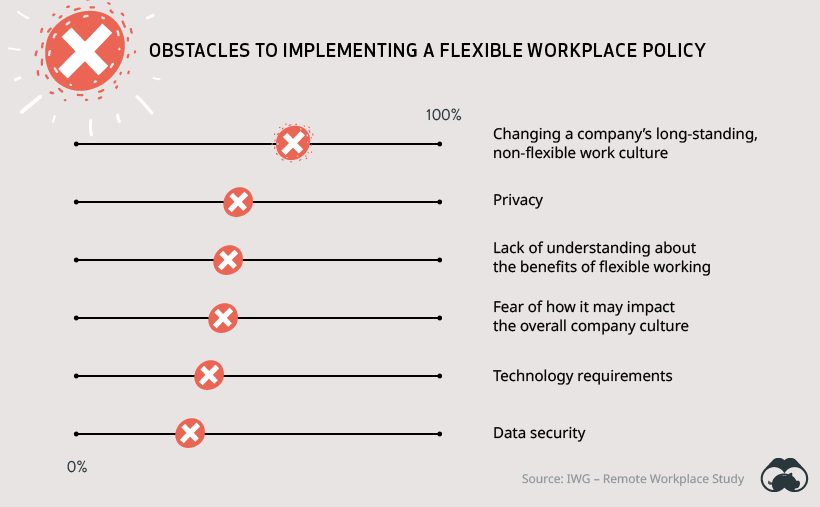
Change is not easy. Managers face many obstacles when implementing a flexible workplace policy, including:
- Changing the non-flexible work culture that has always been in place
- Privacy
- Confusion about the benefits of flexible working
- Technology requirements
- Data security
Concerns of Managers of Remote Teams
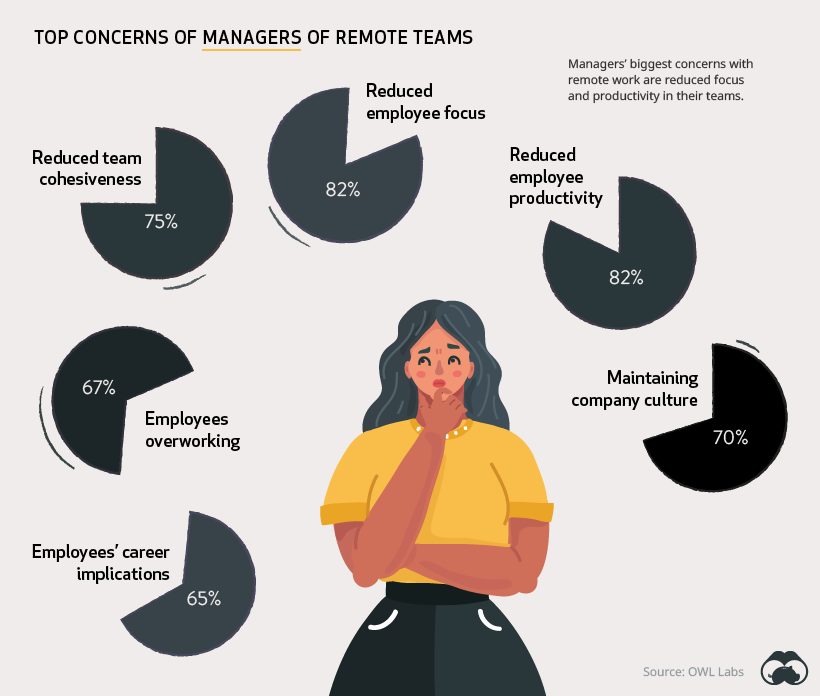
The top concerns of managers of remote teams are reduced productivity and reduced focus. These are very legitimate concerns. Not everyone is cut out for remote work and many will lack focus and not have the self-discipline to complete their jobs while working remotely.
Managers also worry about the ability of the remote workers to work as a team cohesively, employees being overworked, maintaining the company culture while teams work remotely, and the implication on employees’ careers.
Attracting Remote Worker Talent
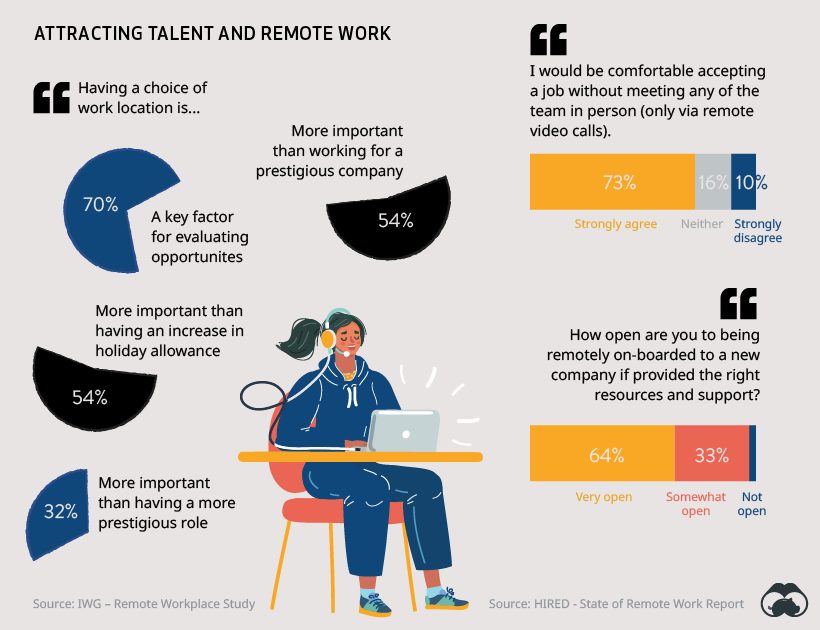
On the up side for managers is the ability to attract new talent to their companies by offering the ability to work remotely. About 70% of job seekers consider the ability to work remotely a key factor in considering job opportunities.
Most workers (73%) also would be comfortable accepting a job opportunity without meeting any team members face-to-face. 64% of workers are open to starting remote work with a new company if the right resources and support are available to them.



.png#keepProtocol)




.png#keepProtocol)
More Stories
The Key to Boosting Retention
Kim Jong Un Unveils Ambitious ‘Regional Development Policy’ To Modernize Rural North Korea Amid Food Shortages
Industry Leader Revolutionizes Business Financing Through Credit Stacking